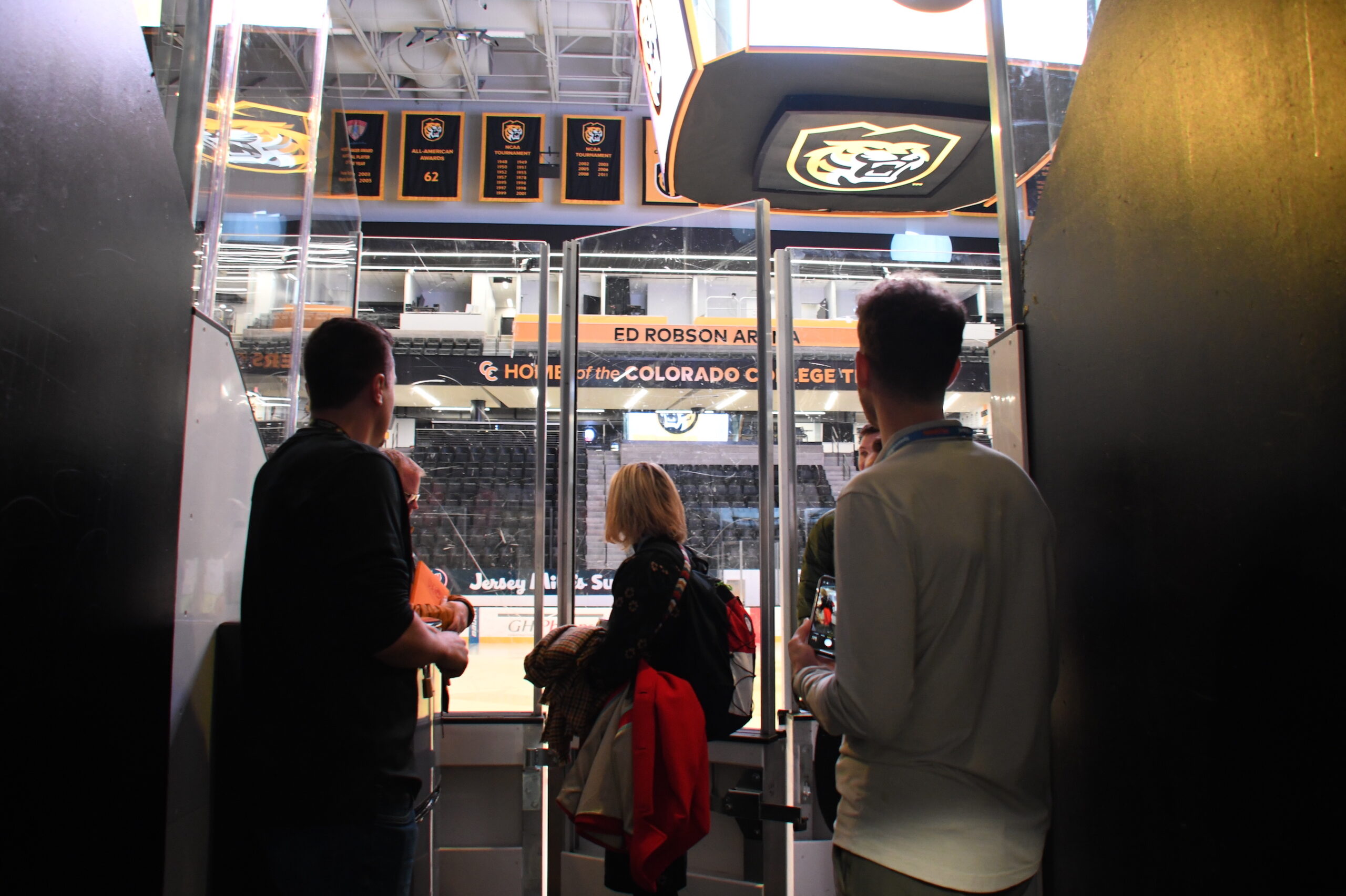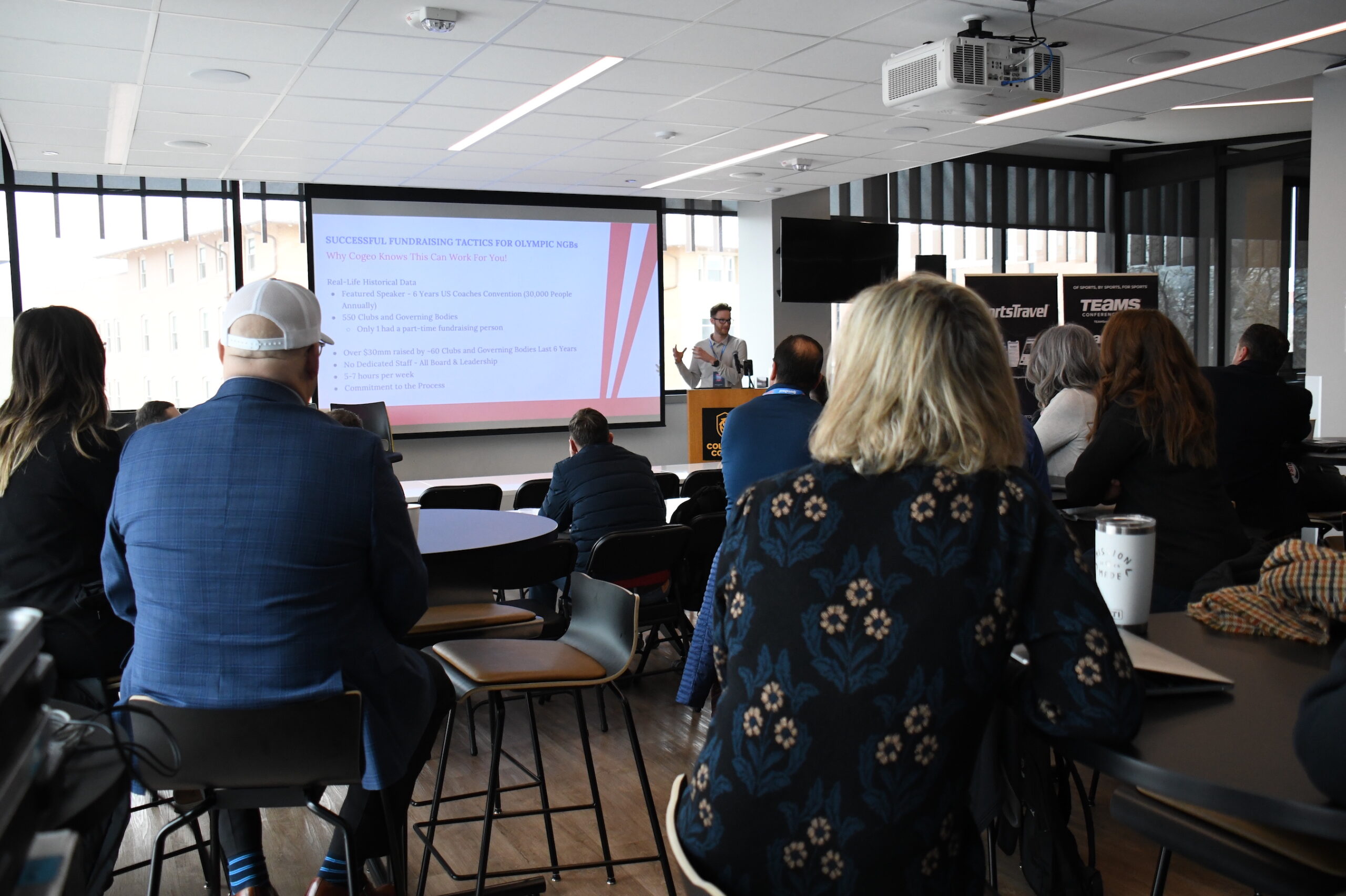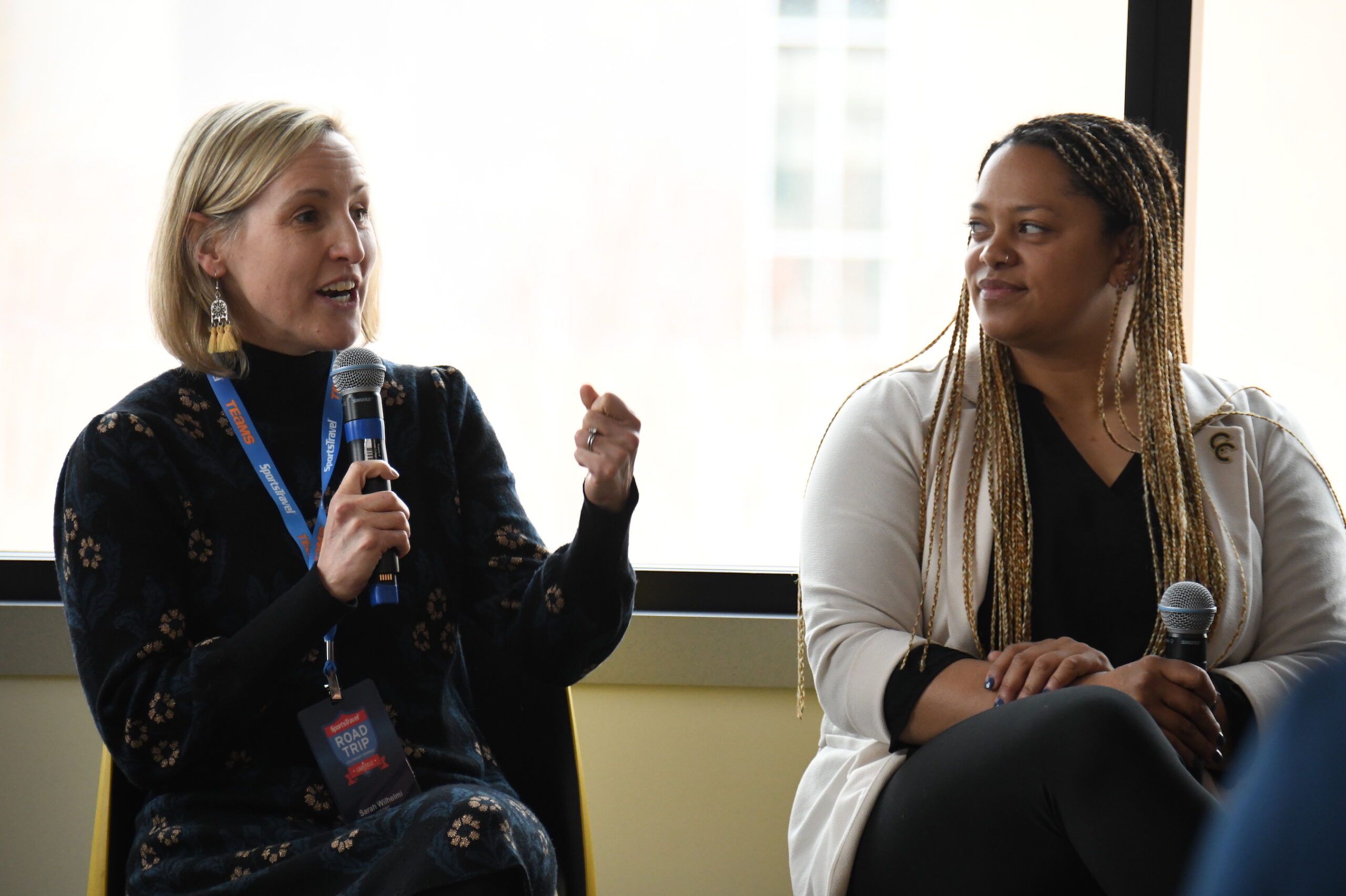Foundational Fundraising, College Sports Discussed at SportsTravel Road Trip
Posted On: March 17, 2023 By :Tips on financial management for national governing bodies and making sure the athlete pipeline remains strong for Team USA through collegiate programming were the themes for the 2023 SportsTravel Road Trip.
The event geared toward chief executives and event directors of sports governing bodies was organized by SportsTravel and sponsored by Louisville Tourism and the Louisville Sports Commission. Attendees on hand at Colorado College were welcomed by Jason Gewirtz of Northstar Meetings Group, Greg Fante of the Louisville Sports Commission and Tammie Liddie of the USOPC with an update on planning for TEAMS ’23 in The Palm Beaches.
Along with the programming sessions, attendees were given a behind-the-scenes tour of Robson Arena, host for this year’s Road Trip and the latest project funded by the Colorado Springs “City For Champions” program. The venue is home to the Division I men’s hockey team at Colorado College.

Fundraising for Athletes
The United States Olympic Endowment was started with $111 million out of the 1984 Los Angeles Summer Games surplus, which overall totaled nearly $400 million. Since then, the group allows USOPC member organizations to pool their endowment funds with the USOE, which acts as an agent for the investment of the USOPC member organization funds. The endowment’s new executive vice president, Alex Lugo, updated attendees on the organization, which will soon be renamed to the United States Olympic and Paralympic Endowment. Its diversified long term investment portfolio has seen a 7.9% rate of return over the past decade.
Along with the USOE, fundraising is another key component of any nonprofit organization, especially NGBs that often rely on outside sources of revenue. Patrick Sampson, chief executive officer of Cogeo, which works with 501(c)3 organizations, discussed two successful fundraising tactics, annual campaigns and capital campaigns. Through utilizing data and finding out more about both potential donors and regular donors who could be encouraged to give more through major gifts, nonprofit organizations can deliver multifaceted messaging with the goal of increasing donations.

The College to Olympic Pipeline
Never has the collegiate pipeline been more important to the Olympic and Paralympic movement. But the collegiate landscape has never been in so much transition as it is now between conference realignment, the state of the NCAA and issues around name, image and likeness. A group of experts discussed issues affecting the collegiate landscape and how NGBs can work with colleges to ensure programs not only can maintain themselves but thrive in the future.
In Tokyo, out of 626 athletes that represented Team USA in the Olympics, 76 percent were current or former student-athletes. 82 percent of Team USA’s medalists had a collegiate sports background. At the Tokyo Paralympics, over half of the athletes for Team USA had a collegiate sports background, winning a combined 92 medals. The numbers for the 2022 Beijing Winter Games are also notable. Nearly 40 percent of Team USA had a collegiate background and 45 of the 67 Paralympic athletes for the U.S. had a collegiate background.

Sarah Wilhelmi, USOPC senior director of collegiate partnerships, and Justine Square, Colorado College assistant athletics director, discussed the current landscape from each of their perspectives with the opportunities that athletes have collegiately and pressures between the NIL debate and future of the NCAA — and therefore Olympic sports — as a whole.
USA Triathlon Chief Sport Development Officer Tim Yount and USA Fencing Chief Executive Officer Phil Andrews spoke to the work each NGB has put in before and after the pandemic trying to grow the number of new collegiate programs while working to keep programs from the chopping block as athletic departments scale back their ambitions.
The group also discussed how Olympic sports can be framed around the enrollment opportunities that exist for colleges as a business case, how NIL has changed the landscape (with USA Triathlon having its own program) and what each believes the future of Olympic sports in the collegiate landscape will be in the coming years.
Posted in: Hosts & Suppliers, Latest News